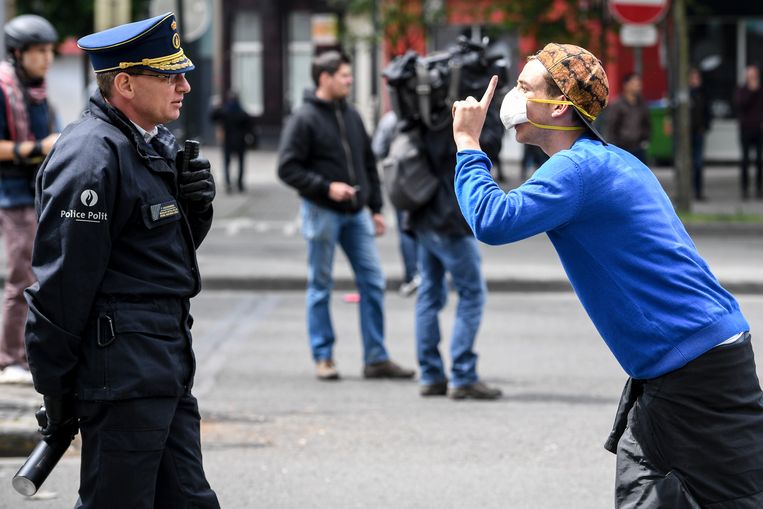Belgium is looking to tackle the at times problematic relationship between the police and young people by ensuring officers have the reflex to adapt their approach when children and young people are involved in interventions.
A survey last year found that four out of five young people don’t feel safe when coming into contact with the police, while officers often feel disrespected by youngsters. Home Affairs Minister Annelies Verlinden said creating a relationship of mutual trust and officers being aware of the differences between young people and adults is the first step in tackling these issues.
"We will never be able to completely avoid the fact that police interventions make an impression on children and young people. But we can try to make it as bearable as possible, by having police officers adapt their approach to them," Verlinden said.
"Often this happens spontaneously. However, we want to ensure that this reflex is present in every policeman and woman and in every intervention. In this way, we reduce the distance between the police and young people, and build a culture of mutual respect."
Adapted approach to victims and suspects
The adapted procedure, developed by the newly created Child and Youth Test working group, will not only be in place when officers approach young people who need to be protected or are witnesses, but importantly, also when they are suspects of criminal offences, Verlinden stressed.
Door het politiewerk aan te passen aan de noden van kinderen en jongeren, willen we de afstand tussen de politie en de jongeren verkleinen. Zo bouwen we verder aan een cultuur van wederzijds respect. ➡️https://t.co/mXZqzl3J7a
— Annelies Verlinden (@AnneliesVl) February 22, 2022
Tweet translation: "By adapting police work to the needs of children and young people, we want to reduce the distance between the police and young people. In this way, we are continuing to build a culture of mutual respect."
The group analysed existing police processes to support police officers, help them understand the behaviour of children and young people, and adapt their approach according to the needs of children and young people.
Related News
- Young boy who stabbed police officer charged with attempted homicide
- Ethnic profiling and violence: 75% of Brussels youth fear police
Verlinden also wants to review the administrative arrests of minors and young people up to 30 years of age as a priority, in light of such arrests taking place during recent demonstrations.
It will also highlight what adjustments are needed to the infrastructure, regulations, communication, training, ICT and other relevant aspects.
"The aim is for children and young people to have confidence in our police officers, including by adapting police work to their needs. It will help break the vicious circle of misunderstanding and distrust," Verlinden concluded.

